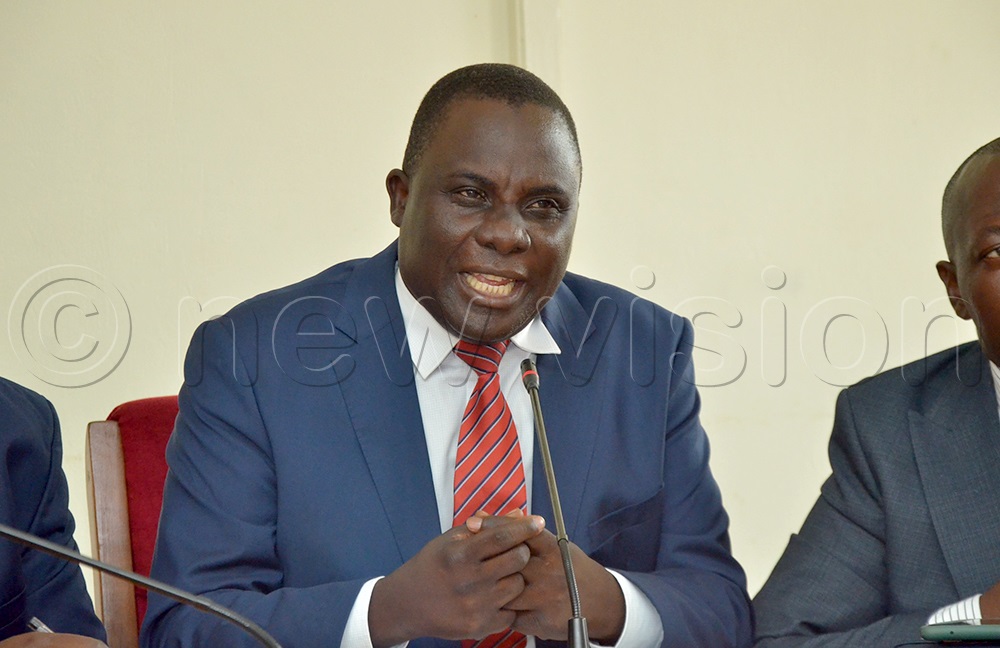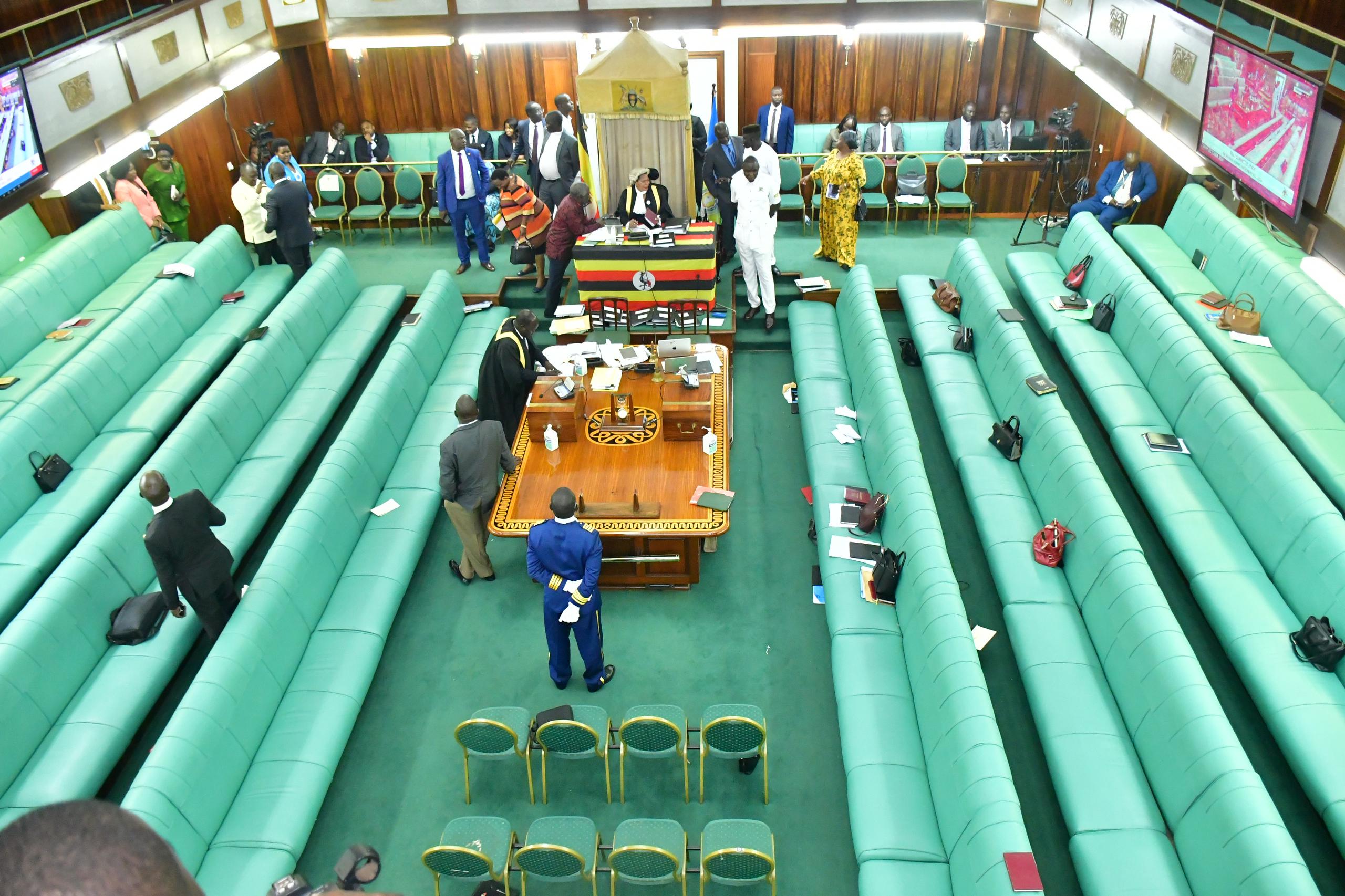The Uganda Revenue Authority (URA), and Uganda Manufacturers Association (UMA), have started sensitizing manufacturers about the Electronic Fiscal Receipting and Invoicing Solution system (EFRIS).
The drive comes at a time when the digital tax administration measure that interfaces the taxpayers’ daily transactional operations with the tax collector’s systems, is facing resistance from wholesalers across the country.
Deus Mugasho, a tax literacy officer from URA, said the tax body found it necessary to enlighten the manufacturers more about the system, although they are already using it. The system was first enrolled in the manufacturing sector and later in other segments of the business community.
According to Mugasho, the manufacturers appreciate the solution not just for using it as a URA requirement that is forced on them. He adds that since manufacturers were among the early adopters of the system, they could help others understand it if they were also well conversant with the solution.
During the meeting, manufacturers raised several concerns, some of which were calling for a total overhaul of the entire system and a VAT rate of 18 percent.
“When we are doing things let us not look at other countries like Kenya, Rwanda, and so on; let us look at ourselves. If it’s 18 percent, a small portion of people participate in the VAT bracket. EFRIS automatically opens up a lot of people into the VAT bracket which is a good thing. I don’t think you lose so much if you advise the government to adjust the rate and make things like sugar more affordable to many Ugandans,” one manufacturer explained.
He added that the government should keep in mind the burden that is put on the final consumers because as commodity prices increase, they have an option of abandoning consumption and finding other ways of survival, which affects the revenues collected.
The other concern from the manufacturers was a call for URA to refrain from calling themselves mere revenue collectors, saying it is not the true representation of who they are because they are the face of government taxation in the public, so they should also have an advisory role.
“For us as taxpayers, we expect the Ministry of Finance to listen to URA’s advice because it would have gotten it from our views. For us as manufacturers to keep in business, we expect the supply chain to continue and people to be able to buy whatever we are manufacturing. The EFRIS system has exposed the business community, and this will affect operations; therefore, a lot of sensitization is required.”
Muzamir Mabira, the UMA head of research and policy, noted that the engagement was necessary to eliminate the lack of understanding between the EFRIS enforcers and the system trainers.
He adds that it is disappointing to see URA offering EFRIS non-compliance penalty waivers to traders who are even opposing the solution but deny the largely compliant manufacturers.
***URN***
Post Views: 1,003
News
Ugandan Citizen Abducted, Held in Secret Detention for Three Months, Sparks Outrage and Calls for Justice

A disturbing new case of unlawful detention has surfaced, highlighting the ongoing human rights crisis in Uganda. A Ugandan citizen was reportedly abducted and held in a secret facility, known as a “safe house,” for three months, only to be released without charge or explanation. This incident, reported by NTV Uganda, has sparked widespread condemnation and renewed calls for accountability regarding human rights abuses in the country.
While the details surrounding the abduction remain unclear, reports indicate that the individual was taken without due process and held incommunicado—an action that has long been condemned by human rights organizations. The victim’s release, with no charges filed and no clear justification, has angered activists and citizens, who view this as yet another case of egregious abuse of power by the state.
“This is a recurring pattern,” said one human rights activist. “Abductions, secret detentions, and unexplained releases have become all too common in Uganda. These acts violate fundamental human rights and erode public trust in the justice system.”
The use of “safe houses,” unregistered detention facilities reportedly operated by security forces, has been a focal point in numerous allegations of torture and illegal imprisonment. Despite repeated calls from both local and international organizations for their closure and accountability for those involved, little action has been taken to address these violations.
This case underscores the urgent need for reform within Uganda’s security apparatus and greater accountability for human rights abuses. Observers hope that drawing attention to these injustices will spur concrete action to bring those responsible to justice and ensure the protection of basic human rights.
As frustration mounts, calls for both domestic and international pressure to hold the government accountable for such crimes grow louder. “One day, there must be accountability for all these crimes against our people,” stated one social media user, reflecting the sentiments of many Ugandans.
News
NUP Gathering Disrupted: Kyagulanyi Alleges Security Force Harassment and Arrests

National Unity Platform (NUP) President Robert Kyagulanyi has accused Ugandan security forces of using excessive force to disrupt a planned NUP gathering. The allegations were detailed in a statement shared on Twitter, following an event held to honor children of NUP supporters who were killed, disappeared, or detained for their political beliefs.
According to Kyagulanyi, security personnel, under the command of an officer identified as Asiimwe, carried out a preemptive operation early in the morning upon learning of the NUP’s plans. The forces allegedly stormed the premises, arrested workers, and deployed tear gas to disperse those present.
“The criminals under the command of one Asiimwe deployed early morning, arrested our workers, and threw tear gas into our premises. They’ve cordoned off the premises and blocked all people from accessing the place,” Kyagulanyi wrote.
Among those reportedly arrested were Saava Peter, Mudenya Samson, and Turyasingura Samson. Kyagulanyi claimed the detained workers were subjected to beatings and interrogated about their political affiliations, with security operatives labeling them as terrorists.
“These JATT operatives asked the workers who they support politically, branding them terrorists and criminals—their only crime being that they work with us. You can imagine the indignity!” Kyagulanyi lamented.
This incident adds to the growing tension in Uganda’s political climate, where opposition parties frequently accuse the government of stifling dissent. Despite the challenges, Kyagulanyi ended his statement with a message of defiance and optimism, proclaiming, “UGANDA WILL BE FREE.”
NUP Gathering Disrupted: Kyagulanyi Alleges Security Force Harassment and Arrests
News
Sudan Demands Apology from Uganda Over Army Chief Muhoozi Kainerugaba’s Threat to Invade Khartoum

Sudan has demanded an official apology from Uganda over “offensive and dangerous” comments made by the chief of Uganda army staff, who threated to invade Khartoum, the Sudan Tribune has reported.
General Muhoozi Kainerugaba, son of Ugandan President Yoweri Museveni and CDF of the Ugandan army, posted two comments on the X platform on Tuesday in which he threatened “to capture Khartoum” with the support of the US President elect Donald Trump after he takes office. The posts were deleted later.
“The government of Sudan demands and official apology from the Ugandan government for the offensive and dangerous comments of the army commander,” Sudan’s foreign ministry said in a statement that the Sudan Tribune said it has seen.
Sudan Demands Apology from Uganda Over Army Chief Muhoozi Kainerugaba’s Threat to Invade Khartoum







